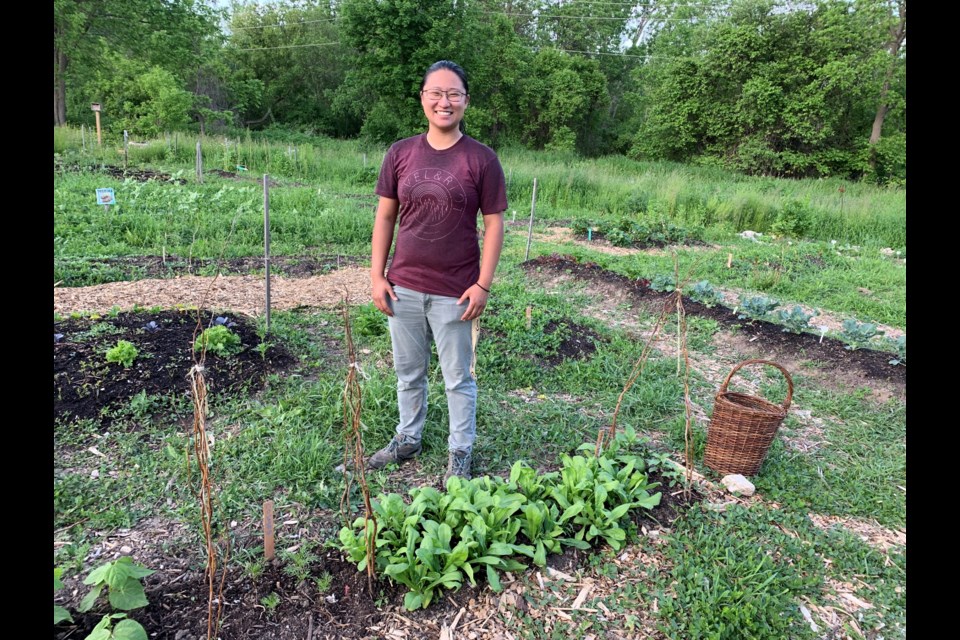A growing trend in organic gardening emerged during the pandemic, but a food shortage and high costs have seen it continue as many Canadians seek to offset the rising cost of store-bought produce.
In January 2022, the Consumer Price Index rose 5.1 per cent — the fastest pace since the index was introduced in 1999.
Canada's Food Price Report, released in December 2021, predicts the average Canadian family will be paying an extra $966 for groceries in 2022. At seven per cent, it's the highest jump ever predicted by the yearly report.
Of the 51 per cent of Canadians who grew their own produce in 2020, nearly one in five started doing it in response to the pandemic, the report said.
There are currently 150 people on the waiting list for a self-managed allotment garden in Newmarket that only has 106 plots available. Prior to the pandemic, there were 40 on the waiting list.
Demand was already high but during the pandemic "it skyrocketed," said Jessica Tong, urban agriculture coordinator for the York Region Food Network (YRFN) community garden.
The desire to grow food has "increased dramatically" in the past two years, said Kate Greavette, executive director at YRFN, but it's "not necessarily accessible to everyone."
The money and effort put into producing food in a balcony garden may not be as economical as growing food on a larger plot of land.
Whether growing food in your own garden or at the Mulock Drive allotment garden, the benefits have little to do with savings and more to do with the experience and connecting with community, she said.
"The experience you gain with connecting with soil, connecting with land and that pride people can get from growing their own food and sharing, that is incredible but we know it's not that magic bullet that's going to solve all of our issues right now around food access and insecurity."
Being physically active in the garden, being in a green space and nature and trying new and healthy fruits and vegetables are some of the biggest benefits to gardening, said Greavette.
Whether you've always grown your own food or always wanted to try it, Thrive for Good, a registered charity founded in 2008, is offering access to its Thrive Gardening Academy for free.
The professionally produced course contains 46 online training videos that are less than 10 minutes each. Certified organic gardener Phil Nauta teaches everything needed to kick start a bountiful garden, from soil preparation and layout, choosing and planting seeds, and harvesting fresh vegetables and herbs.
The course also provides tips on cooking the home-grown foods to prevent disease and live a longer, healthier life.
"Growing organic, nutritious food helps people stay healthier longer, regenerates the environment, and saves a lot of money," said James Woller, international executive director at Thrive For Good, in a news release.
Thrive's mission is to eradicate poverty. For the past decade the charity has been working with local communities in Kenya to help end hunger by providing the training and tools necessary to grow healthy, organic, disease-fighting and sustainable food.
To download the free, online gardening course, visit the Thrive website.
YRFN is a non-profit organization that believes in the right to food and empowers people to access healthy food through education and advocacy. Its programs and services are designed to create opportunities for community members of all ages and backgrounds to come together, enjoy local and healthy food while developing valuable social networks. It manages the Newmarket allotment garden at 900 Mulock Dr.
Visit the YRFN website to add your name to the allotment garden wait list. There is no wait list for the community garden, which is on Main Street at London Road in Newmarket.
